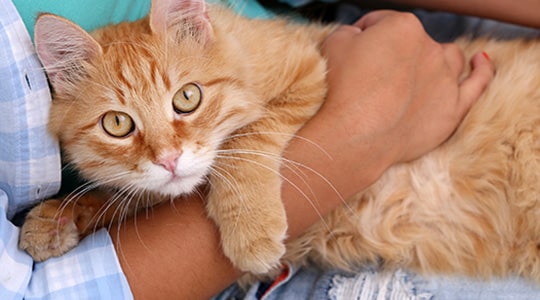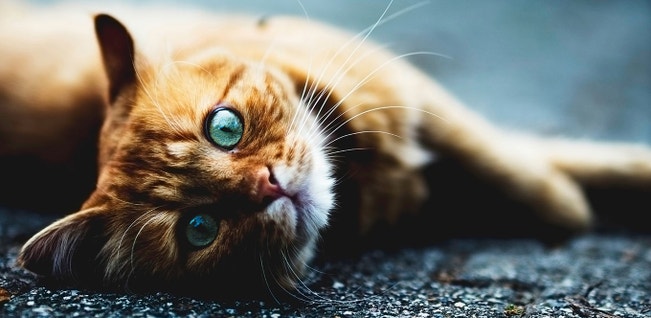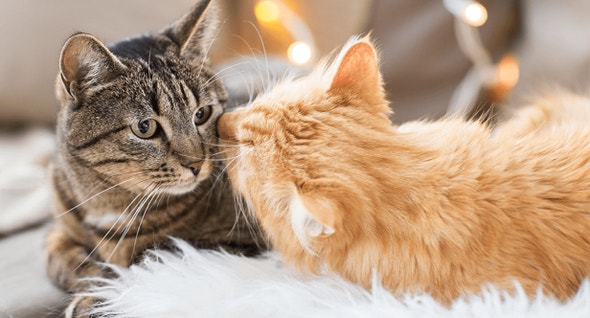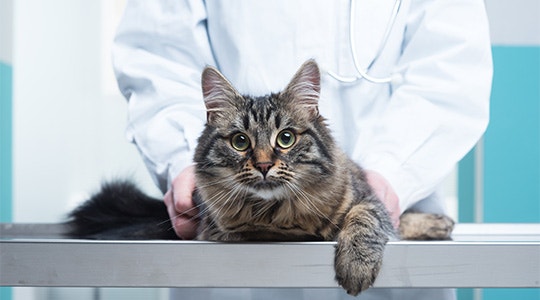
Help! My Cat Hates Vet Visits
Does your cat dive under the couch at the mere mention of a trip to the vet? You're not alone. But why do cats hate the vet so much? It's because they're routine-oriented animals. So, especially for indoor cats, trips to see strangers outside the comfort of their home can be extremely stressful and feel unnatural.
But since cats are known for hiding illnesses, regular vet visits are especially important for them. Here's what to do if your cat hates going to the vet.
Tips for Setting Your Cat Up for a Successful Vet Visit
So, what do you do when you're already 15 minutes late for your appointment and your cat is still clinging to the carpet? Here are a few ways to set your cat up for successful vet visits in the future.
Make a Good First Impression
If you're taking a kitten to the vet for the first time, you have a chance to help them see it as more of an inconvenience rather than a major stressor. How do you do that? First, make sure you've got an appropriately sized cat carrier to transport your cat. You can even throw in their favorite blanket or toy for the ride to make them feel more at home. Giving your cat a familiar scent or object can go a long way toward making them feel safe.
Consider arriving a few minutes early so you can take things slow. Rushing straight from the car in to meet a stranger may not go well. Go inside to assess the situation before bringing your cat in. If the waiting room is full of unfamiliar animals, you may want to go ahead and check in early, and then ask if you can wait with your cat in the car.
Know What to Expect
Does your vet have a website or phone number you can call? Speaking with someone at the office to learn what to expect can be a huge help. As the experts in vet visits, they're likely to have a few tips on how to prepare your cat for your specific vet appointment. Here are some questions you might want to ask before you go:
- Should my cat eat or drink before their appointment?
- How many people should come with me and my cat?
- Can I come into the exam room or will I wait in a waiting room during the appointment?
- Is there any paperwork, information or other items I need to bring with me?
- Should I sedate my cat before going to the vet if they tend to get stressed out or be unruly?
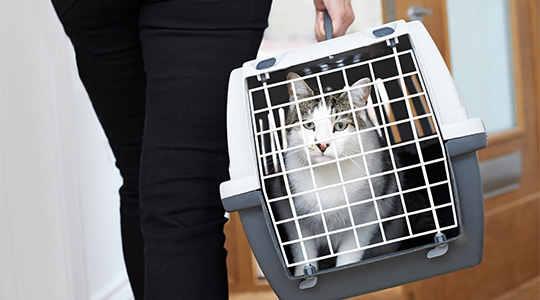
Have a Game Plan
Having an idea of how you'll tackle the trickiest portions of the vet visit beforehand can make your life much easier. Here are a few things you may want to map out.
Full, Rested and Happy
You may not always be able to ensure your cat is in a good mood when taking them to the vet — especially if they're dealing with a health issue — but making sure your cat is well cared for before the visit can go a long way. If your vet says they can eat and drink before their appointment, feeding them some nutritious food and giving them plenty of water can help your cat feel more relaxed and content while they’re in the waiting room.
Coax Your Cat into the Carrier
Cats like small spaces. So, leave your cat's carrier out for at least a few days before their visit to the vet. That will give them time to get familiar with it on their own terms. Make it cozy and comfortable with a soft towel or blanket and reward your cat for spending time in the carrier with a favorite toy, a treat or some well-deserved praise. It's going to be hard to avoid making your cat feel trapped inside the carrier when it's time to go, but giving them a positive association with it beforehand can be a big help.
Stay Calm in the Car
To say that car rides are a bit of sensory overload for your cat is a bit of an understatement. Make it a little easier on them by draping a familiar towel or blanket over the carrier while in the car to minimize some of the sights and sounds your cat may be dealing with. Just make sure they can still get plenty of air.
Lots of Reassurance Afterward
Giving your cat plenty of affection and positive reinforcement after the vet visit is super important. Don't be surprised or worried if they seem exhausted or sluggish. These are normal responses to stress or anxiety in cats. Your little fur ball should be back to their old self in no time. Your vet may also be able to offer calming products for your cat or a sedative for future use, depending on the severity of the visit.
Start Fresh
If your cat had a particularly traumatizing episode with a vet visit in the past, it may be time for a clean slate with a new vet or vet clinic in your area. The experts at Banfield Pet Hospital(open in new tab) can help you make an appointment online in no time.
Why Does My Cat Act Strange after Visiting the Vet?
A lot of cats experience stress and anxiety while they're at the vet, and sometimes they take that feeling home with them. Whether they're hiding, avoiding their food or being more aggressive than usual, it's normal for them to be a little off for a few hours, and maybe even a few days, after their appointment. Be sure to monitor their behavior closely but don't overreact. All they need is a little time and a lot of love — and maybe a treat or two.
Take Care of Yourself Too
We know it can be stressful to see your cat feeling stressed, but remember that you're doing a great job. Getting your cat to their regular vet visits is one of the most important ways you can show your cat that you love them. Congratulations on being a rock star cat parent!

